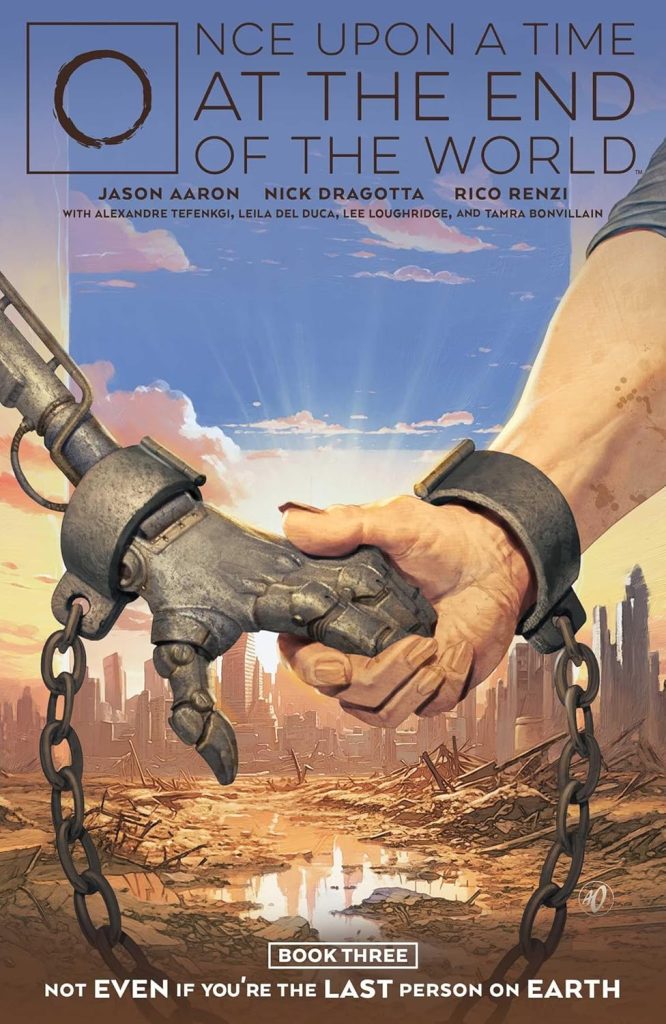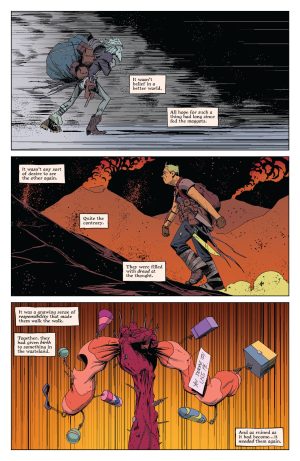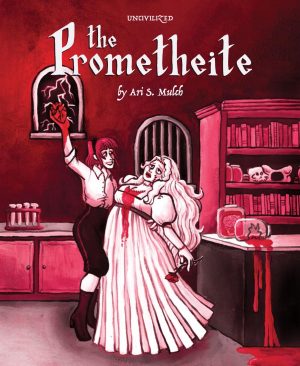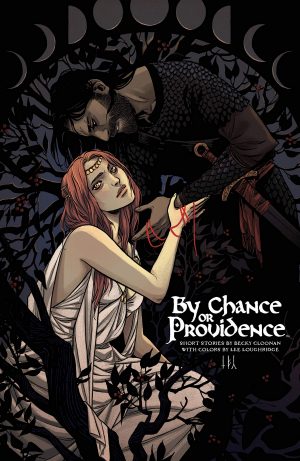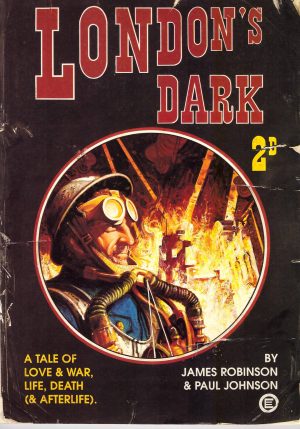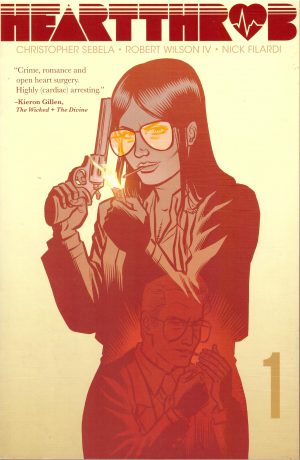Review by Karl Verhoven
While Once Upon a Time at the End of the World has provided a solid love story, we’ve also seen flashes forward indicating that a full Mad Max future is on its way, and lo! with Book Three it arrives. And it’s partly down to Mezzy.
With her certainties ripped from her in Book Two it doesn’t take long for childhood indoctrination to resurface, and Mezzy in turn creates a new generation of nihilistic rangers. “Mother raised us to be hard and scarred” is their mantra, and they’re the new scourge of whatever societies are left, entirely perverting any message of hope. Here, brothers and sisters, we’re in regular territory for Jason Aaron, as when it comes to pitting the hardest of the hard against impossible odds he’s the man, but it’s rarely comforting.
Hang on, isn’t Once Upon a Time at the End of the World a love story? Well, yes, it is. It’s about how a true love gets under your skin and remains there no matter what, and how. As the Pretenders once sang, there’s a thin line between love and hate. Maceo and Mezzy might not have seen each other for decades (then again, they might have), but what they had once it developed ran deep, and all that time of hostility hasn’t entirely erased it.
Now and then during the previous books we’ve seen Nick Dragotta illustrating grim flashes forward showing Maceo and Mezzy as old people, and now that future has been reached Dragotta brings it to even more horrifying life. However, we now get flashes back to earlier times, illustrated by Alexandre Tefenkgi and Leila del Duca according to when they occurred, although they rarely offer respite from the disquieting mood. Dragotta’s version of the main pair is also unsettling. Mezzy has become a bulky brute, although the surly expression was always close to hand, and Maceo an emaciated, skeletal figure whose technological experiments have been on himself.
We shouldn’t give the impression the negativity is infinite, although it is remorseless, and Book Three is a good chapter longer than it needs to be. Along the way Aaron answers a question or two you might have had nagging for a while, and delivers one magnificent finale. The visual metaphors over the final pages are so well considered you’ll think perhaps it isn’t the end of the world after all. Except it is. The title tells you that.
